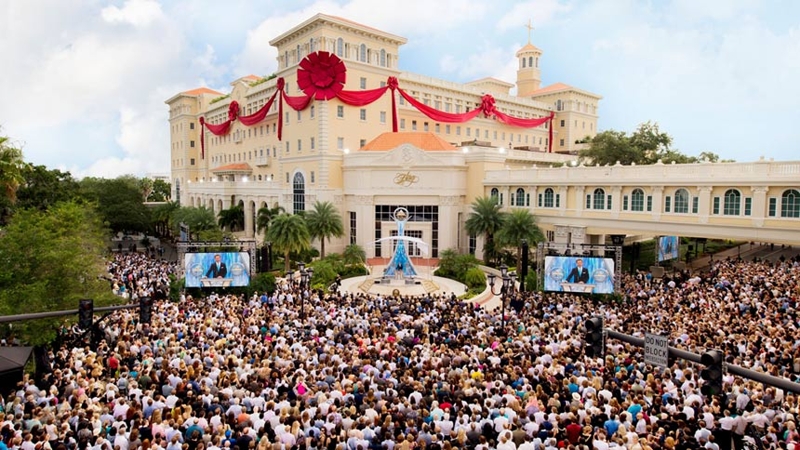Understanding Church of Scientology: Origins, Ideas, and Practices Unveiled
Understanding Church of Scientology: Origins, Ideas, and Practices Unveiled
Blog Article
Unveiling the Beliefs and Practices of Church of Scientology
As a fascinating and frequently questionable subject, the Church of Scientology has long stirred curiosity and discussion. Central to Scientology is the idea of auditing, a kind of spiritual counseling aimed at attaining a state of clarity and self-realization.
Founder and Core Ideas
Established in the mid-20th century by L. Ron Hubbard, the Church of Scientology is based on the core ideas focused around the concept of spiritual knowledge and self-improvement. Hubbard, a prolific author and thinker, developed Scientology as a religion in 1954, stressing the concept that human beings are never-ceasing spiritual beings who have actually forgotten their real nature. Central to Scientology is the belief in the never-ceasing spirit, or the "thetan," which is the true self that transcends the physique.
Hubbard created a set of practices and mentors aimed at aiding people accomplish spiritual recognition and overcome previous traumas with a process called auditing. Auditing entails an one-on-one session with a qualified auditor who guides the person with a collection of concerns and exercises developed to discover and resolve adverse experiences or feelings. Via auditing, fans of Scientology look for to acquire a state of "clear," where they are devoid of the unfavorable impacts of previous traumas and can operate at their full capacity.
Bookkeeping and Spiritual Practices

In addition to bookkeeping, the Church of Scientology likewise highlights various spiritual techniques to enhance personal development and self-awareness. These practices consist of researching the mentors of Scientology creator L. Ron Hubbard, taking part in community events, and participating in honest actions. Fans are motivated to use these spiritual practices in their everyday lives to attain spiritual enlightenment and individual satisfaction. On the whole, auditing and spiritual methods act as fundamental devices in the journey in the direction of spiritual enlightenment within the Church of Scientology.
Sea Org and Business Framework
The Church of Scientology's functional efficiency and ordered structure are exhibited through the Sea Org and its business structure. The Sea Company, commonly known as Sea Org, is a spiritual order within Scientology that plays a critical role in overseeing the everyday procedures of the church. Participants of the Sea Org dedicate to life time of service, authorizing a billion-year contract representing their devotion to the church's objective.
The organizational framework of the Sea Org is highly centralized, with a stringent power structure that guarantees clear lines of authority and accountability. On top of the structure is the Commodore's Messenger Organization (CMO), which serves as the intermediary in between the Sea Org and the Church's management. Below the CMO are numerous departments and units in charge of different facets of the church's operations, such as management, interaction, and safety and security.

Objections and debates
Amidst the widespread influence and procedures of the Church of Scientology, various conflicts and objections have emerged, sparking debates and examination from various quarters. One major point of opinion focuses on the Church's methods of separating participants from those that examine the company or slam, including family members and good friends - Scientology. Movie critics suggest that this plan can result in seclusion and the malfunction of connections outside the Church
Another contentious problem is the Church's aggressive litigation methods against former participants, journalists, and others who speak up versus Scientology. These legal fights have increased worries about free speech and making use of lawsuits as a tool to silence dissent.

Celeb Participation and Impact
One facet that has actually considerably added to the general public picture and reach of the Church of Scientology is the involvement and impact of stars in its methods and promo. Considering that its creation, the Church of Scientology has actively looked for the assistance of noticeable numbers in the show business. Top-level celebs such as Tom Cruise, John Travolta, and Kirstie Alley have actually openly endorsed Scientology, accentuating the faith and drawing in new fans.
Celeb participation in Scientology goes past simple recommendation; some celebs hold significant positions within the Church. Tom Cruise, one of the most popular Scientologists, is taken into consideration a famous figure within the company and has been included in advertising Scientology around the world. These celebrity recommendations and energetic participation in spreading out the ideas of Scientology have actually aided raise the visibility and acceptance of the faith, specifically amongst followers and fans of these celebrities
Nevertheless, the impact of stars in Scientology has likewise been a subject of dispute, with doubters arguing that their participation boosts the perception of Scientology as a celebrity-driven cult instead than a legitimate religious organization.
Conclusion
Finally, the Church of Scientology, started by L. Ron Hubbard, is based upon the concepts of auditing and spiritual practices. The Sea Org plays a central role in the organization's structure. Regardless of disputes and criticisms surrounding the church, its impact expands to star involvement. The beliefs and techniques of the Church of Scientology remain to be a topic of discussion and scrutiny within society.
Founded in the mid-20th century by L. Ron Hubbard, the Church of Scientology is based on the core beliefs centered around the concept their website of spiritual enlightenment and self-improvement.Bookkeeping and spiritual methods in the Church of Scientology play a crucial duty in directing fans in the direction of spiritual understanding and personal growth.Apart from bookkeeping, the Church of Scientology also stresses different spiritual techniques to improve individual growth and self-awareness. Overall, auditing and spiritual practices serve as fundamental tools in the trip in the direction of spiritual knowledge within the Church of Scientology.
In verdict, the Church of Scientology, established by L. Ron Hubbard, is based on More Info the concepts of auditing and spiritual practices.
Report this page